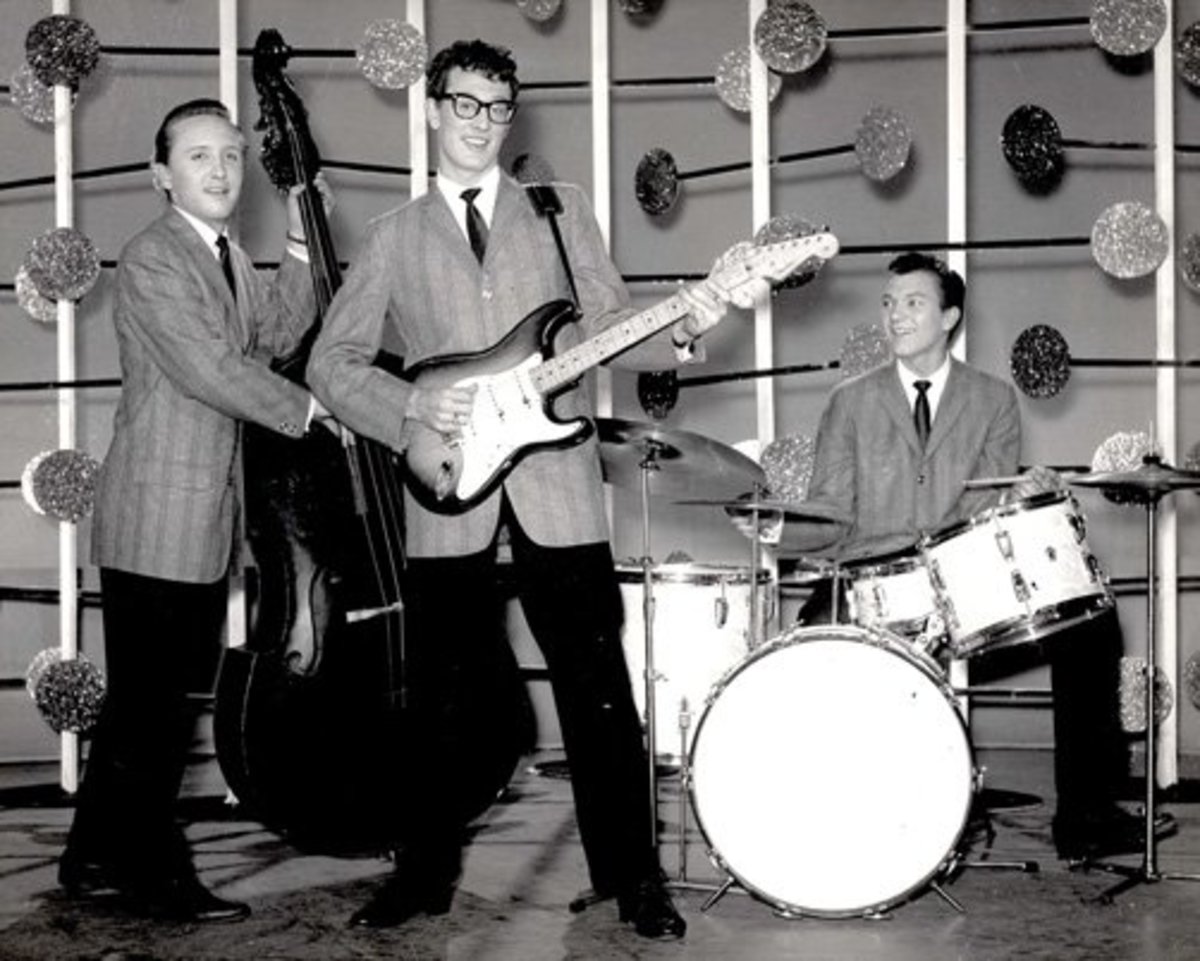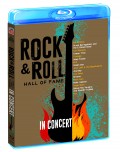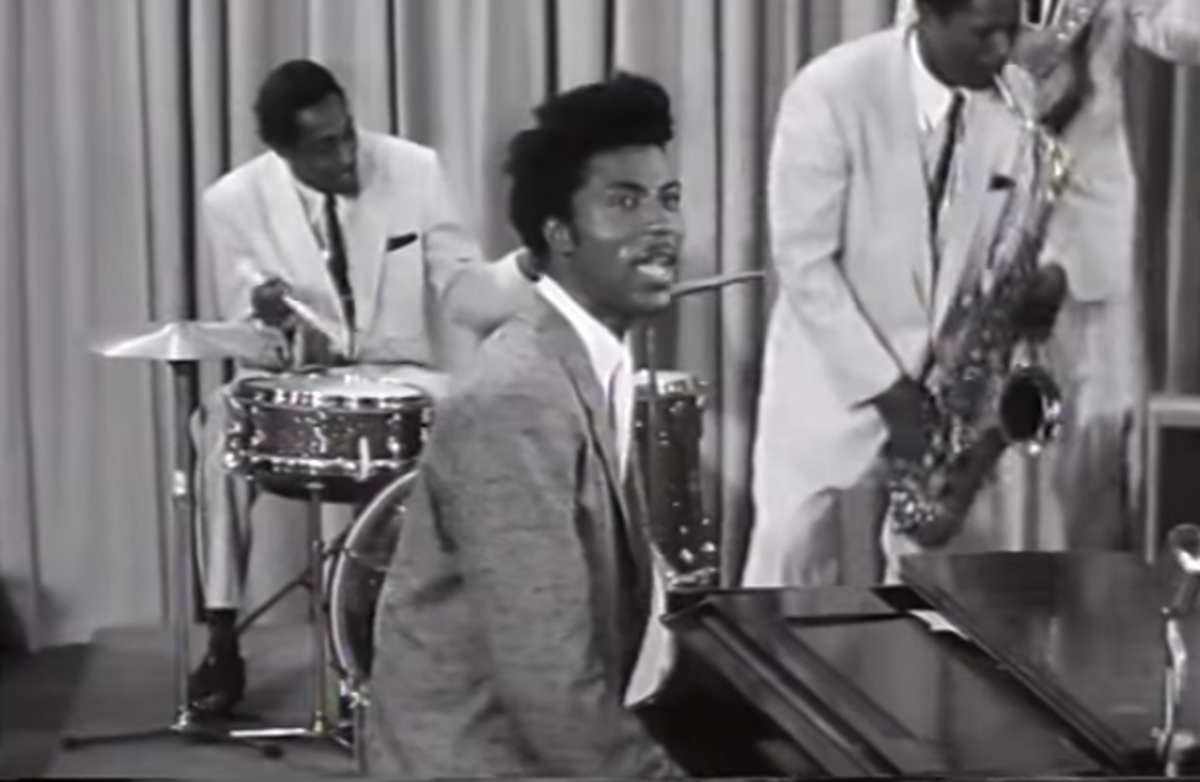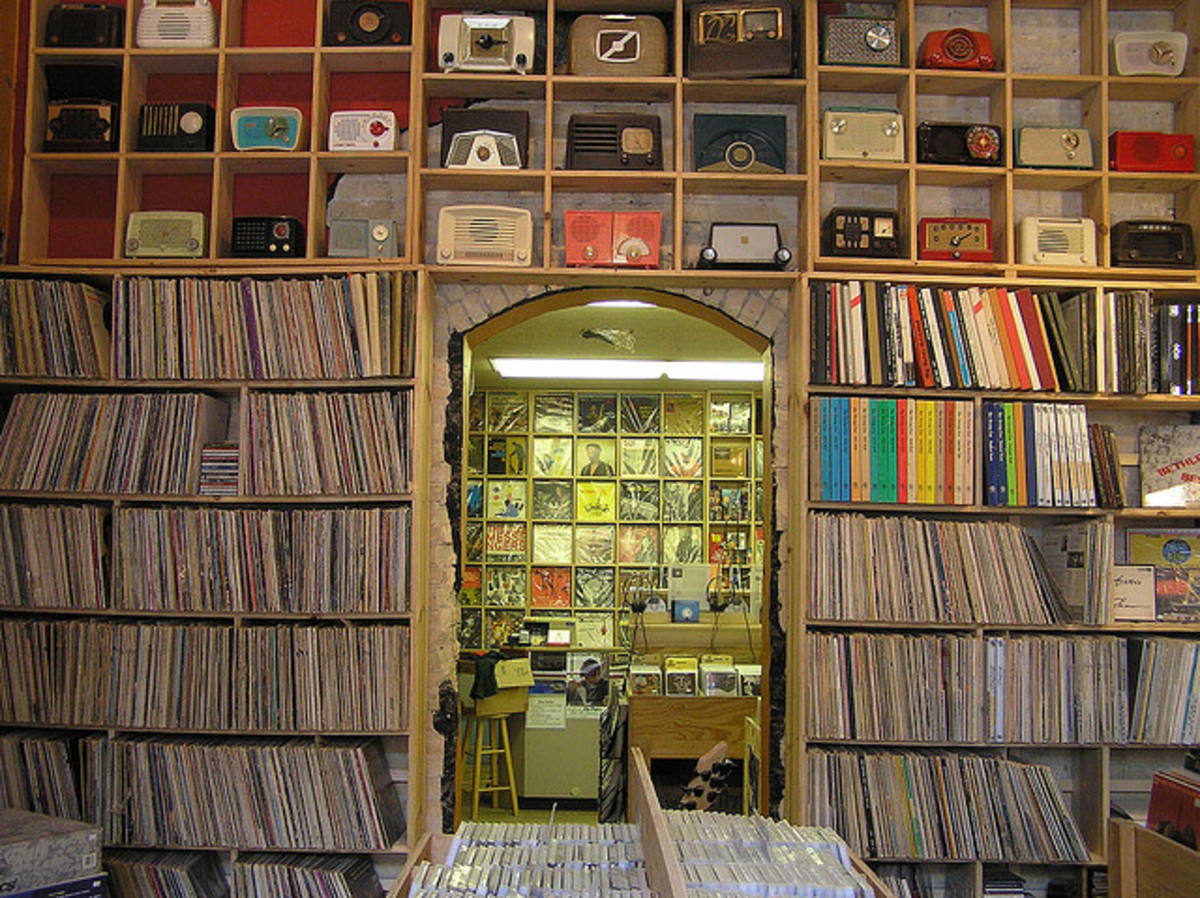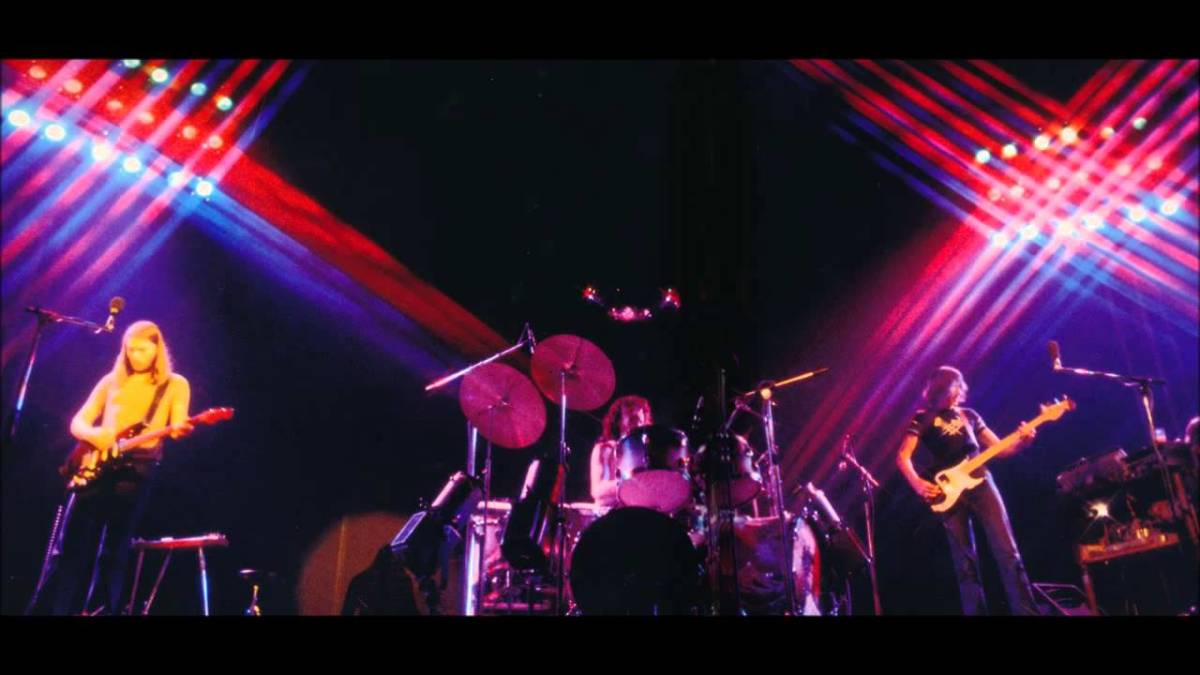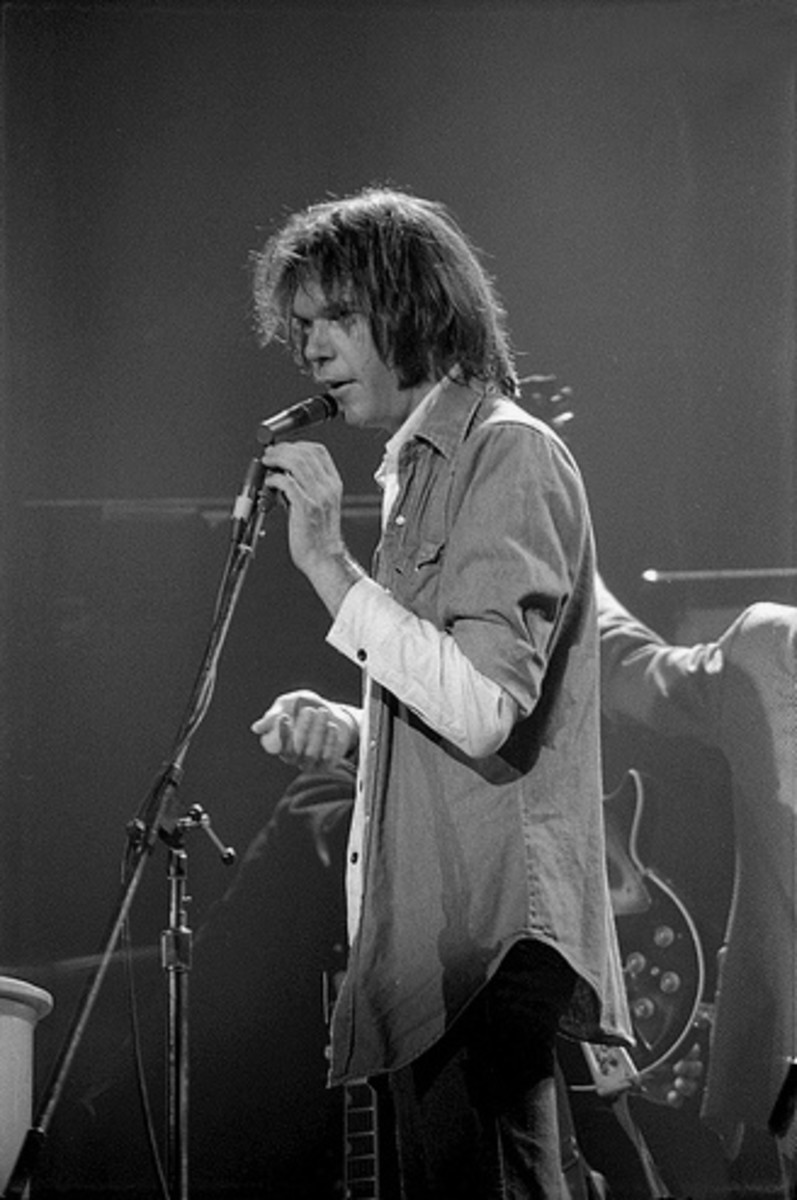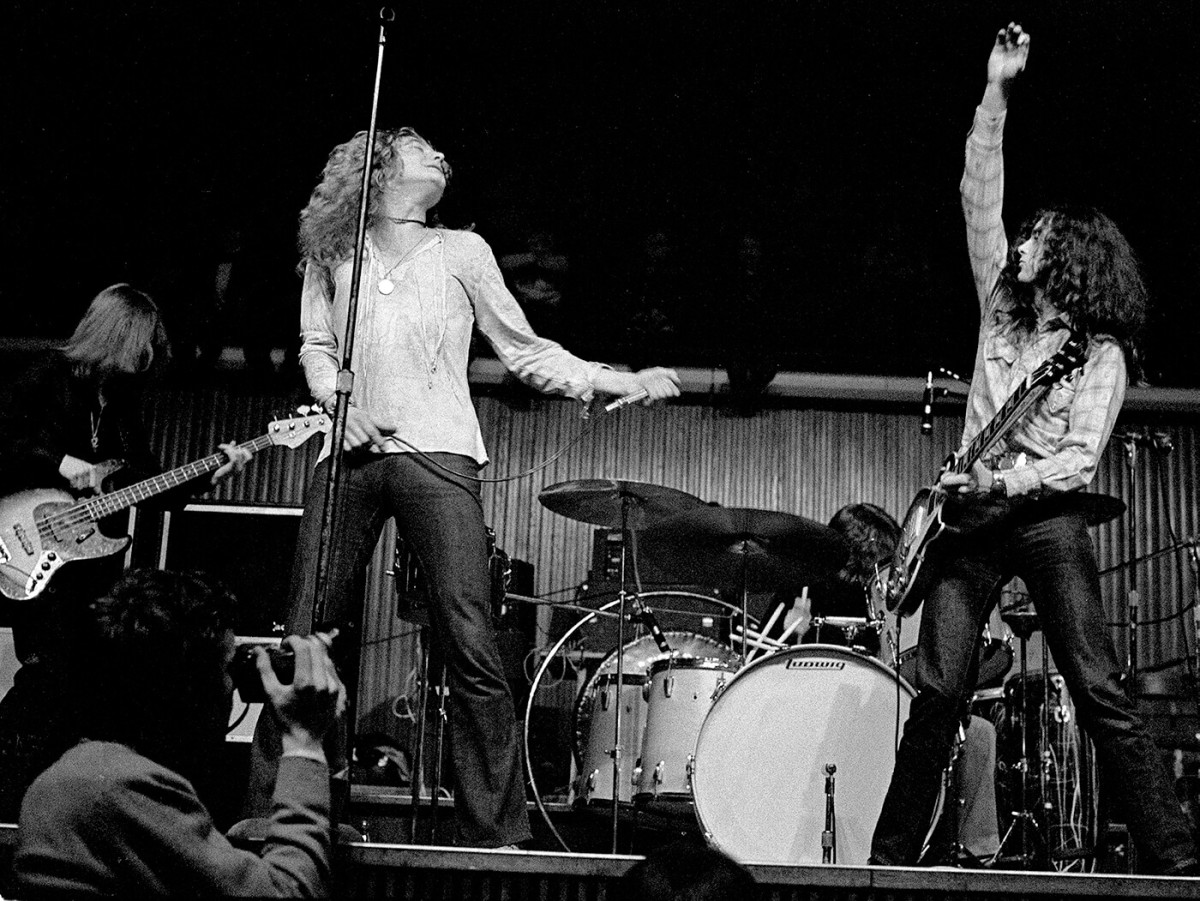A Brief History Of Rock

A Brief History Of Rock
Rock & Roll is an indelible part of our contemporary music history that has changed our world. It has inspired social changes, been inspired by social changes, and has inspired many artists who went on to form new genres of music.
But where exactly does rock and roll come from? Rock and Roll is a genre of music that cameinto being in the late 1940s to early 1950s from the mixture of elements of blues, jazz, gospel, swing, and country styles prominent at the time. The first incarnation of rock and roll involved a bluesy rhythm with a strong backbeat, a rhythm guitarist, a standing bassist, and a piano or saxophone taking the lead role in the mix. After the mid 1950’s the lead instrument was very commonly an electric guitar, the standing bass replaced by an electric one, but the other instrumentalists (rhythm guitarist and drummer) maintained their roles.
Where did the term ‘rock and roll’ come from? The phrase "rocking and rolling" originallydescribed the movement of a ship on the ocean, but was used by the early twentieth century, both to describe the spiritual fervor of African American church rituals and as a sexual analogy. Various gospel, blues and swing recordings used the phrase before it became used more frequently – but still intermittently – in the 1940s, on recordings and in reviews of what became known as "rhythm and blues." In 1934, the song "Rock and Roll" by The Boswell Sisters had been in the film Transatlantic Merry-go-round. In 1942, Billboard magazine columnist Maurie Orodenker started to use the term "rock-and-roll" to describe upbeat recordings such as "Rock Me" by Sister Rosetta Tharpe. By 1943, the "Rock and Roll Inn" in South Merchantville, New Jersey, was established as a music venue. In 1951, Cleveland, Ohio disc jockey Alan Freed began playing this music style while popularizing the phrase to describe it.
Why is Rock & Roll important? Far more than a mere musical style, rock and roll influenced lifestyles, fashion, attitudes, and language. In addition, rock and roll may have contributed to the civil rights movement because both African-American and white American teens enjoyed the music. Many early rock and roll songs dealt with issues of cars, school, dating, and clothing. The lyrics of rock and roll songs described events and conflicts that most listeners could relate to through personal experience. Topics such as sex that had generally been considered taboo began to appear in rock and roll lyrics. This new music tried to break boundaries and express emotions that people were actually feeling but had not talked about. An awakening began to take place in American youth culture. Widespread tensions developed in the 1960s in American society that tended to flow along generational lines regarding the war in Vietnam, race relations, sexual mores, women's rights, traditional modes of authority, and a materialist interpretation of the American Dream. White, middle class youth — who made up the bulk of the counterculture in western countries — had sufficient leisure time, thanks to widespread economic prosperity, to turn their attention to social issues. These social issues included support for civil rights, women's rights, and gay rights movements, and a rejection of the Vietnam War. The counterculture also had access to a media which was eager to present their concerns to a wider public.
Demonstrations for social justice created far-reaching changes affecting many aspects of society. Hippies became the largest countercultural group in the United States. The rock music being created at that time reflected the social struggles of the time period. Buffalo Springfield’s ‘Ohio’ was a song inspired by a college protest that ended in the death of some college students due to police brutality. The Doors ‘Unknown Soldier’ was one of the first anti-war songs, satirizing the concept of going to war. ‘Woodstock’ is a song by Joni Mitchell which was about the concert held there in 1969. It was the largest peaceful gathering of people in human history (400,000+). ‘Revolution’ is a self-explanatory song created by The Beatles. These songs influenced and were influenced by society, and are an indelible part of our history.
What other musical genres has Rock & Roll influenced? While it is impossible to pinpoint exactly what Rock & Roll’s true influence is as artists tend to combine elements of multiple forms of music to their own style, some of the genres that emerged displayed a clear link to rock and roll music.
-Punk rock: Punk rock is a rock music genre that developed between 1974 and 1976 in the United Kingdom, United States, and Australia. Rooted in garage rock and other forms of music, punk rock bands eschewed perceived excesses of mainstream 1970s rock. Punk bands created fast, hard-edged music, typically with short songs, stripped-down instrumentation, and often political, anti-establishment lyrics. Punk embraces a DIY ethic; many bands self-produced recordings and distributed them through informal channels.
-Metal: Metal is a genre of rock music that developed in the late 1960s and early 1970s, originally in the United Kingdom and later in the United States. With roots in blues rock and psychedelic rock, the bands that created heavy metal developed a thick, massive sound, characterized by highly amplified distortion, extended guitar solos, emphatic beats, and overall loudness. Heavy metal lyrics and performance styles are often associated with masculinity, aggression and machismo.
-Grunge: Grunge is a subgenre of alternative rock that emerged during the mid-1980s. Inspired by hardcore punk, heavy metal, and rock, grunge is generally characterized by heavily distorted electric guitars, contrasting song dynamics, "growling" vocals and apathetic or angst-filled lyrics. The grunge aesthetic is stripped-down compared with other forms of rock music, and many grunge musicians were noted for their unkempt appearances and rejection of theatrics.
-Progressive Rock: Progressive rock is a style of music that originated in the United Kingdom, with further developments throughout the mid-to-late 1960s and 1970s. It developed from psychedelic rock and originated, similarly to art rock, as an attempt to give greater artistic weight and credibility to rock music. Bands abandoned the short pop single in favor of instrumentation and compositional techniques more frequently associated with jazz or classical music in an effort to give rock music the same level of musical sophistication and critical respect. Songs were replaced by musical suites that often stretched to 20 or 40 minutes in length and contained symphonic influences, extended musical themes, fantasy-like ambiance and lyrics, and complex orchestrations. Music critics, who often labeled the concepts as "pretentious" and the sounds as "pompous" and "overblown," tended to be hostile toward the genre or to completely ignore it.

